
Dongen (NB): reformed church
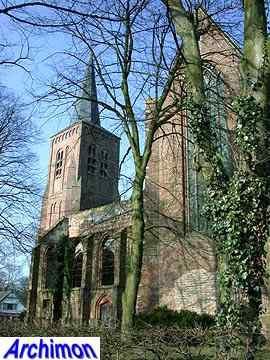 The old
church of Dongen is one of a few ruined churches in this country. The
tower probably dates from the 15th century and is the oldest part of
the church. With its heavy diagonally positioned buttresses and undeep
blind niches with round shapes it is a typical example of early Campine
Gothic.
The nave, transept and choir date from ca. 1500. Originally the nave
had a basilican shape, with low side-aisles with small windows and a
clerestorey illuminating the interior, but in 1640-1644 the walls of
the side-aisles were heightened, larger windows were made and the
clerestorey vanished under the roof, resulting in a pseudo-basilican
nave. The church was still in catholic hands at that time, but in 1648
it was confiscated by the protestants, despite the fact that they had
only just completed a church of their own elsewhere in the village in
the year before.
The old
church of Dongen is one of a few ruined churches in this country. The
tower probably dates from the 15th century and is the oldest part of
the church. With its heavy diagonally positioned buttresses and undeep
blind niches with round shapes it is a typical example of early Campine
Gothic.
The nave, transept and choir date from ca. 1500. Originally the nave
had a basilican shape, with low side-aisles with small windows and a
clerestorey illuminating the interior, but in 1640-1644 the walls of
the side-aisles were heightened, larger windows were made and the
clerestorey vanished under the roof, resulting in a pseudo-basilican
nave. The church was still in catholic hands at that time, but in 1648
it was confiscated by the protestants, despite the fact that they had
only just completed a church of their own elsewhere in the village in
the year before.
The new protestant owners at first were able to take good care of the
building even though they were only few in numbers; the catholic
majority of the population was simply forced to pay for maintenance as
well. After the catholics were given more rights in 1795 they made
several attempts to get the church back. Despite governmental policy in
the early-19th century that churches should be returned wherever
catholics formed a majority the protestants simply refused to leave.
Maintenance however no longer was paid for by the community, except for
the tower which was property of the municipality, and the church fell
into decay. In ca. 1919 the protestants finally realized that the
church was much too big for them and started negotiations with the
catholics, whose church had been demolished by fire in 1917. The
catholics however preferred to build a new church (the St. Laurentius) rather than
to pay the high price the protestants ask for the old one, plus the
costs of a much needed restoration. Although the protestants saw no
other option than to keep the church, their use from that time on was
restricted to the transept and choir only as the nave was in an
especially bad state. In 1928 neglect took its toll when the roof of
the nave came down during a storm. Ever since it has been a ruin. In
the 1970's there were plans to restore the church to its 17th-century
form. In 1975 the church was sold for the symbolic price of 1 guilder
to a foundation with the goal to restore the church, but until now only
the choir has been restored.
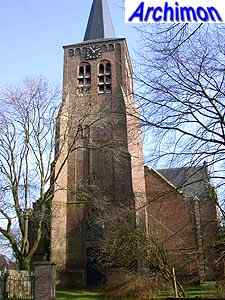
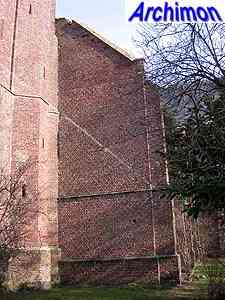
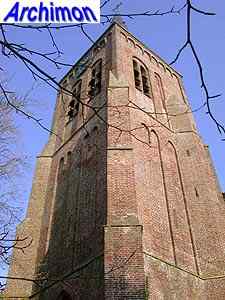
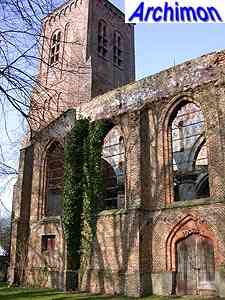
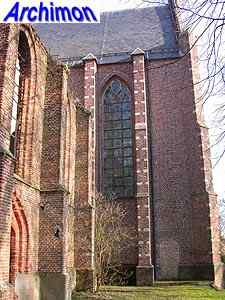
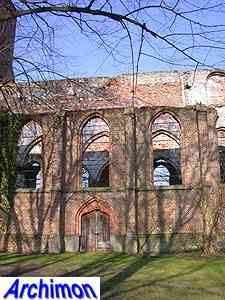
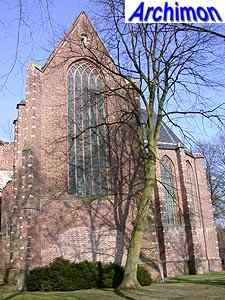
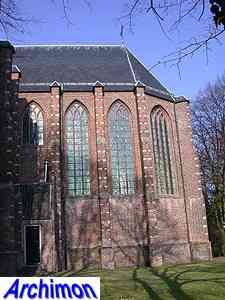

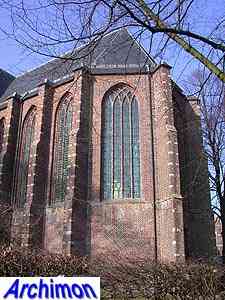
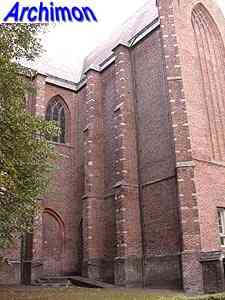
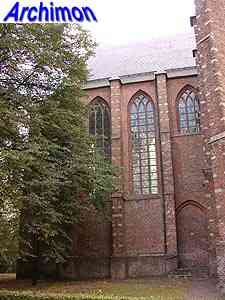

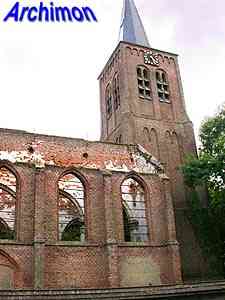

Back to Dongen